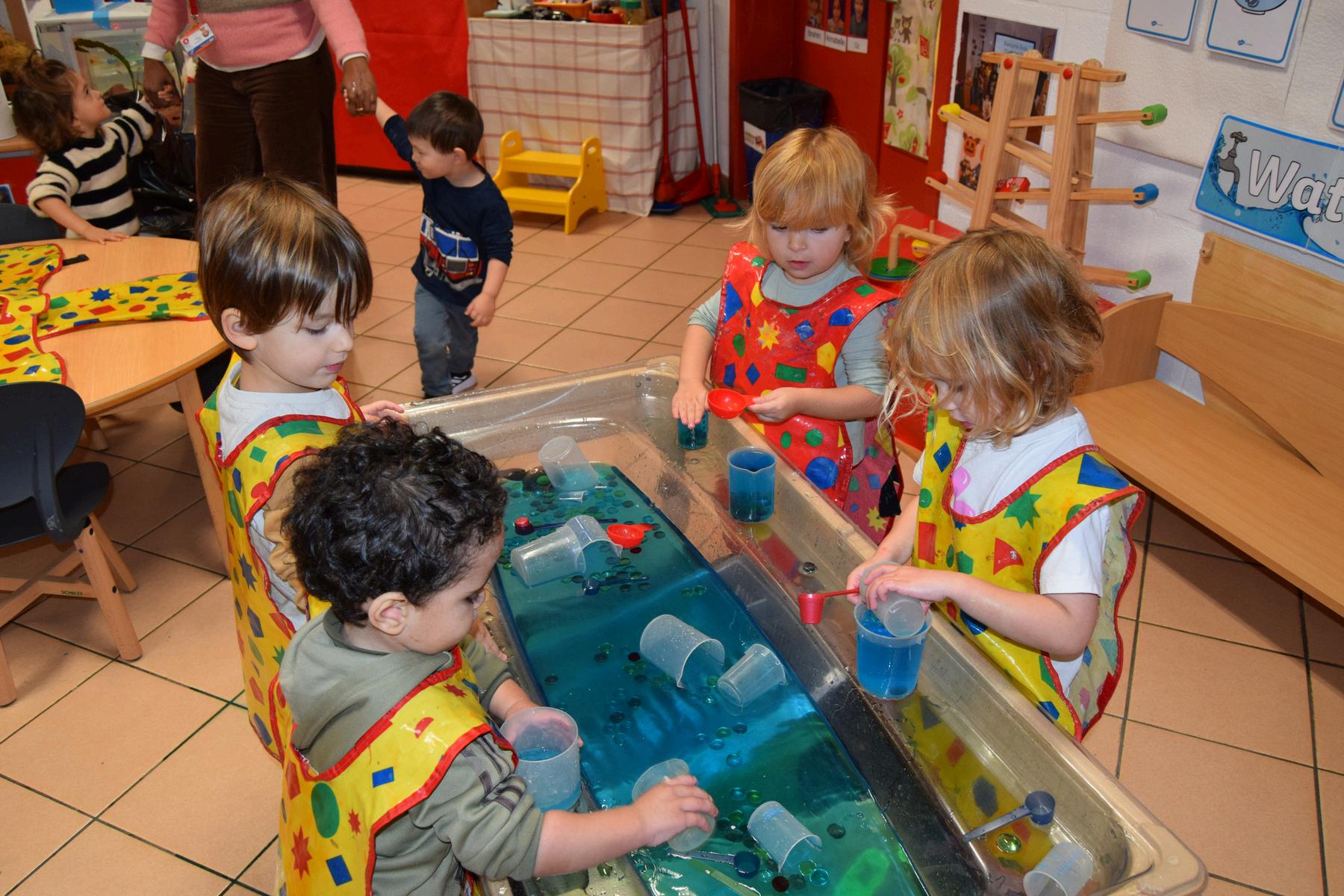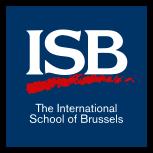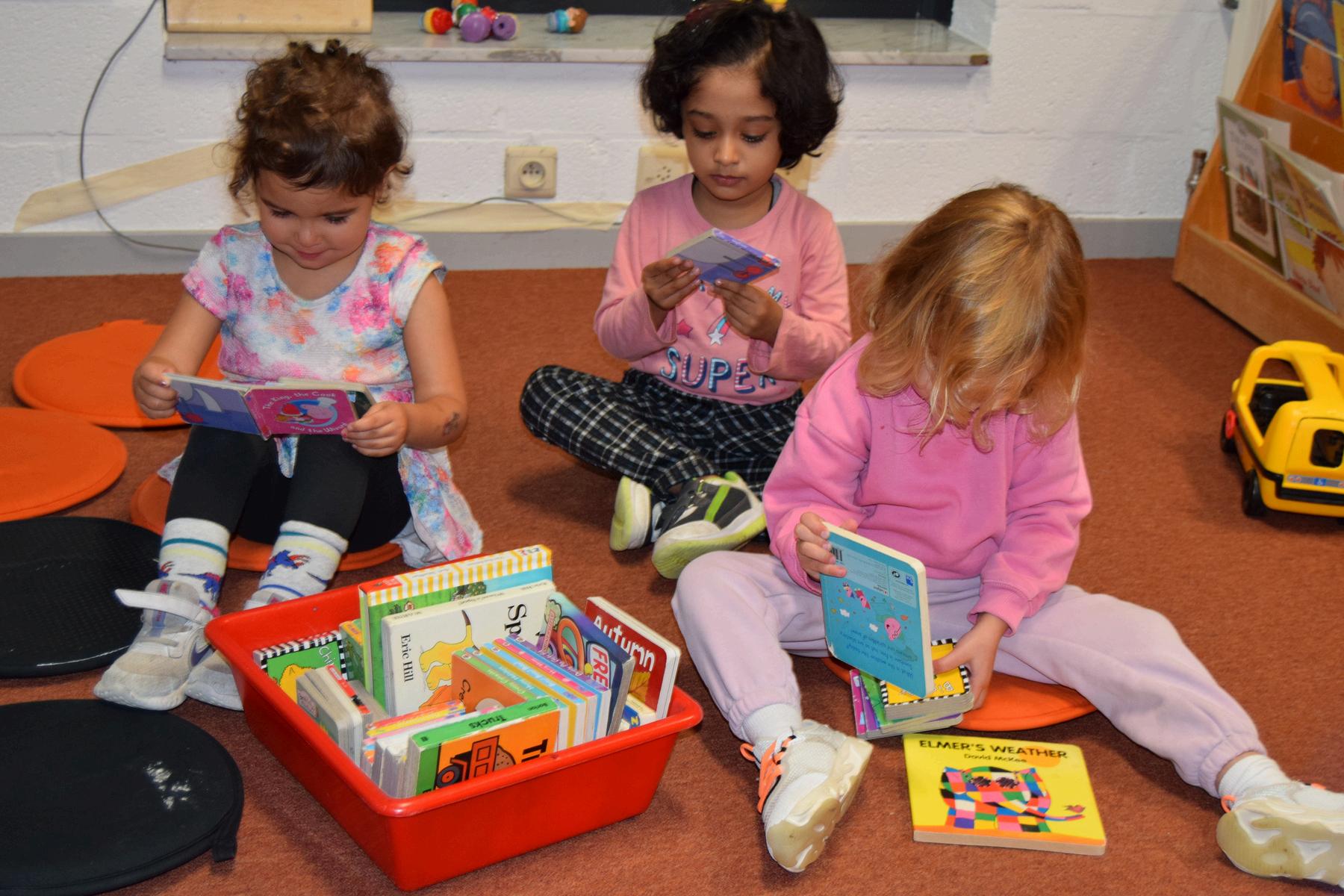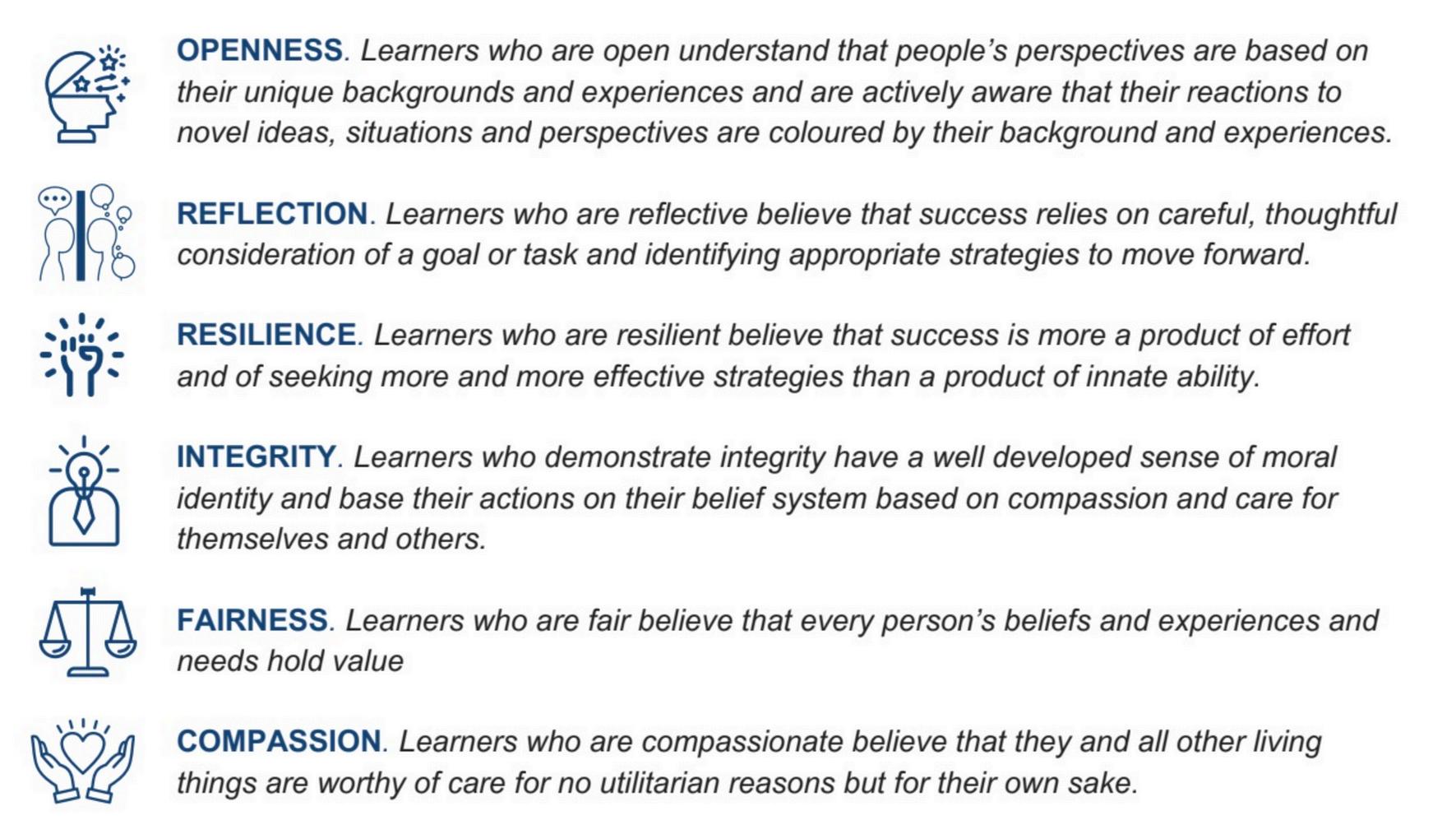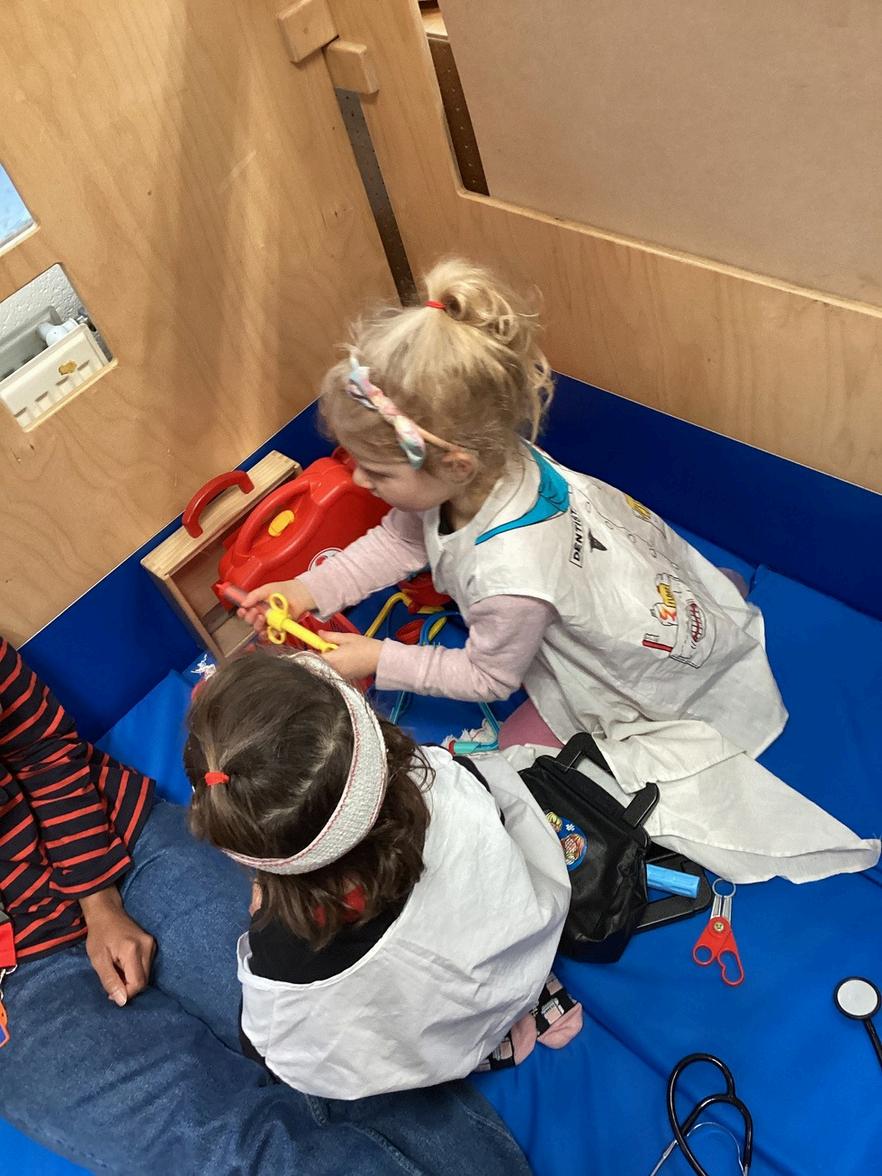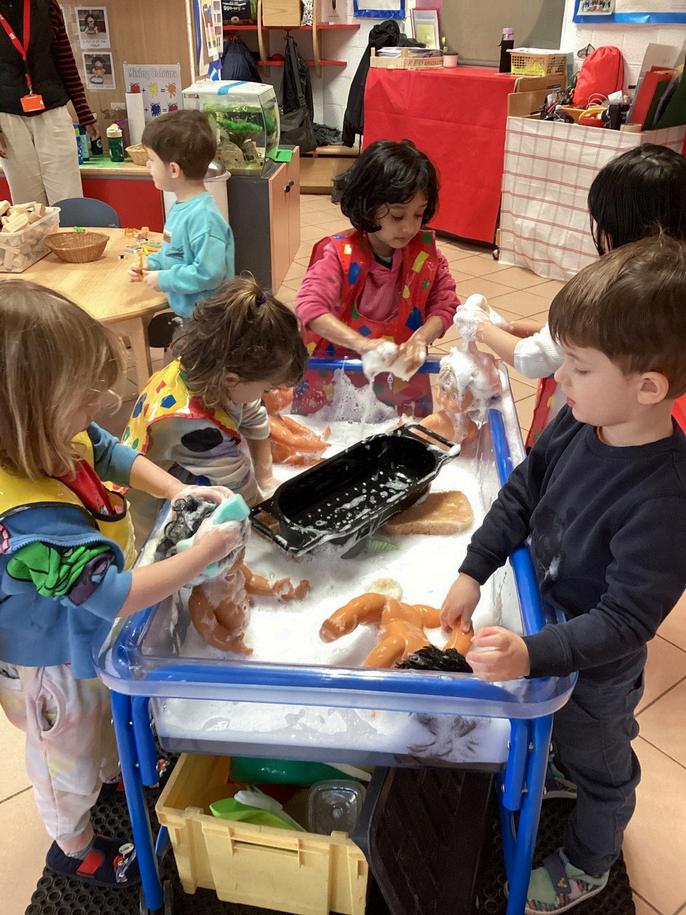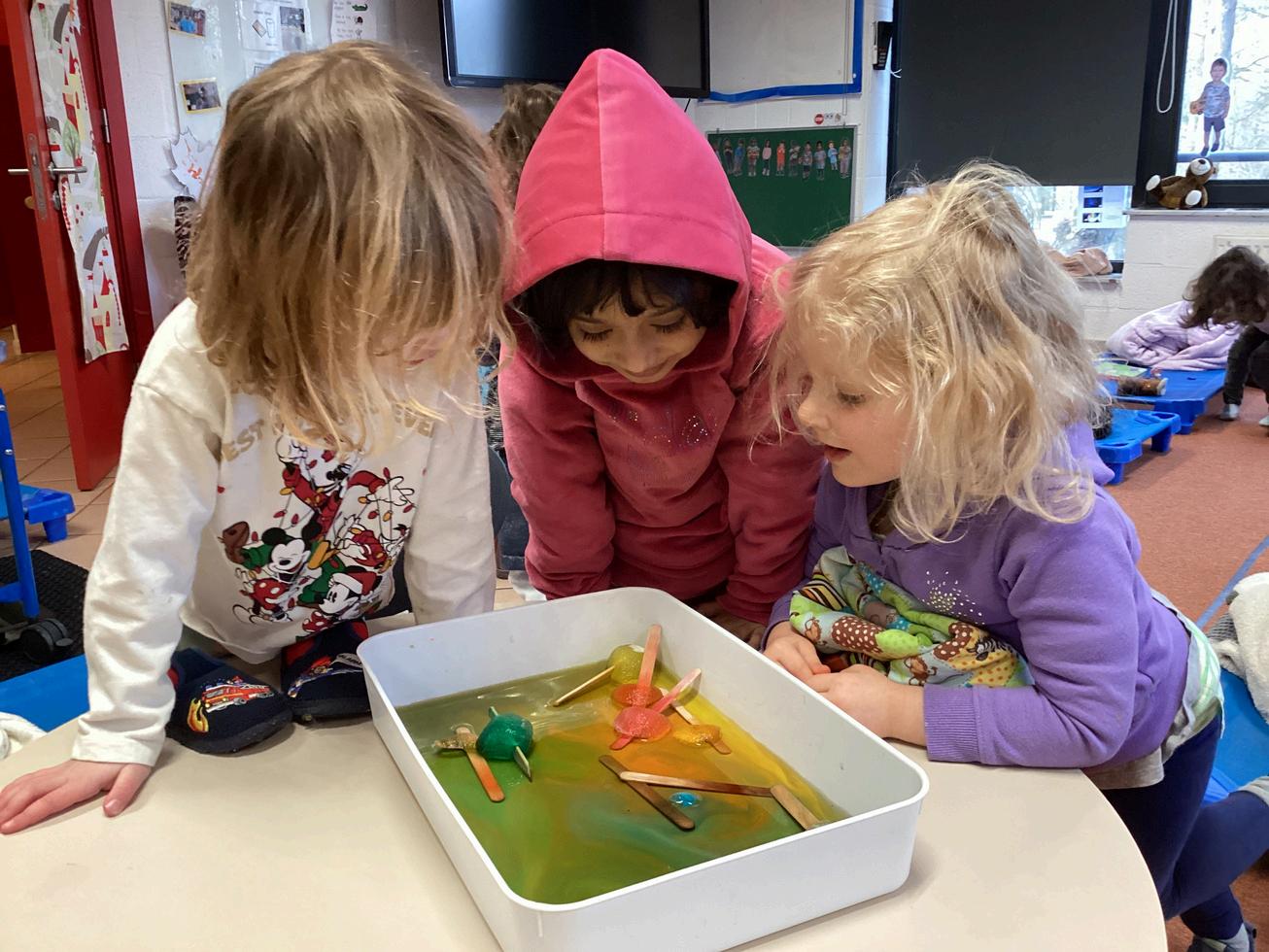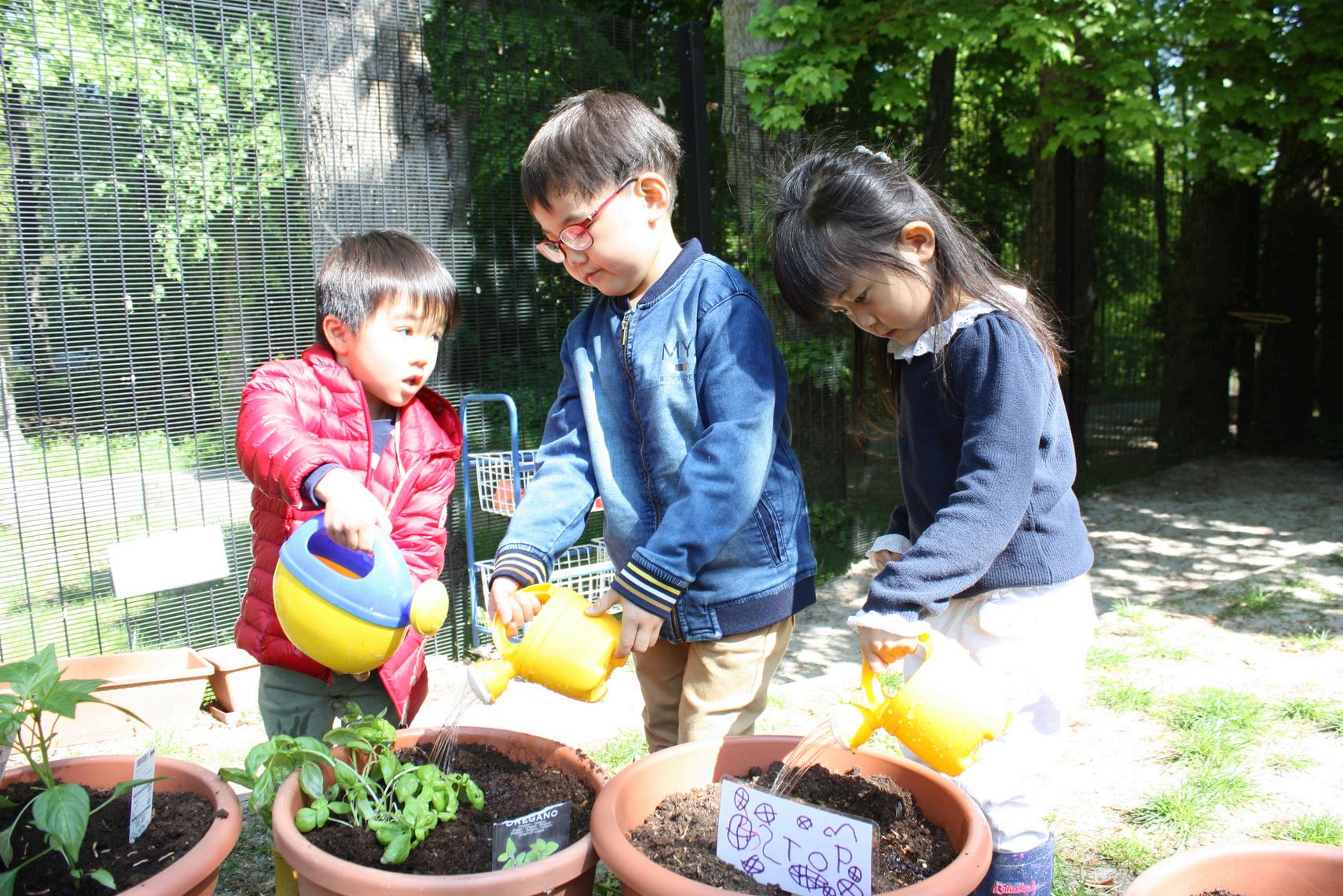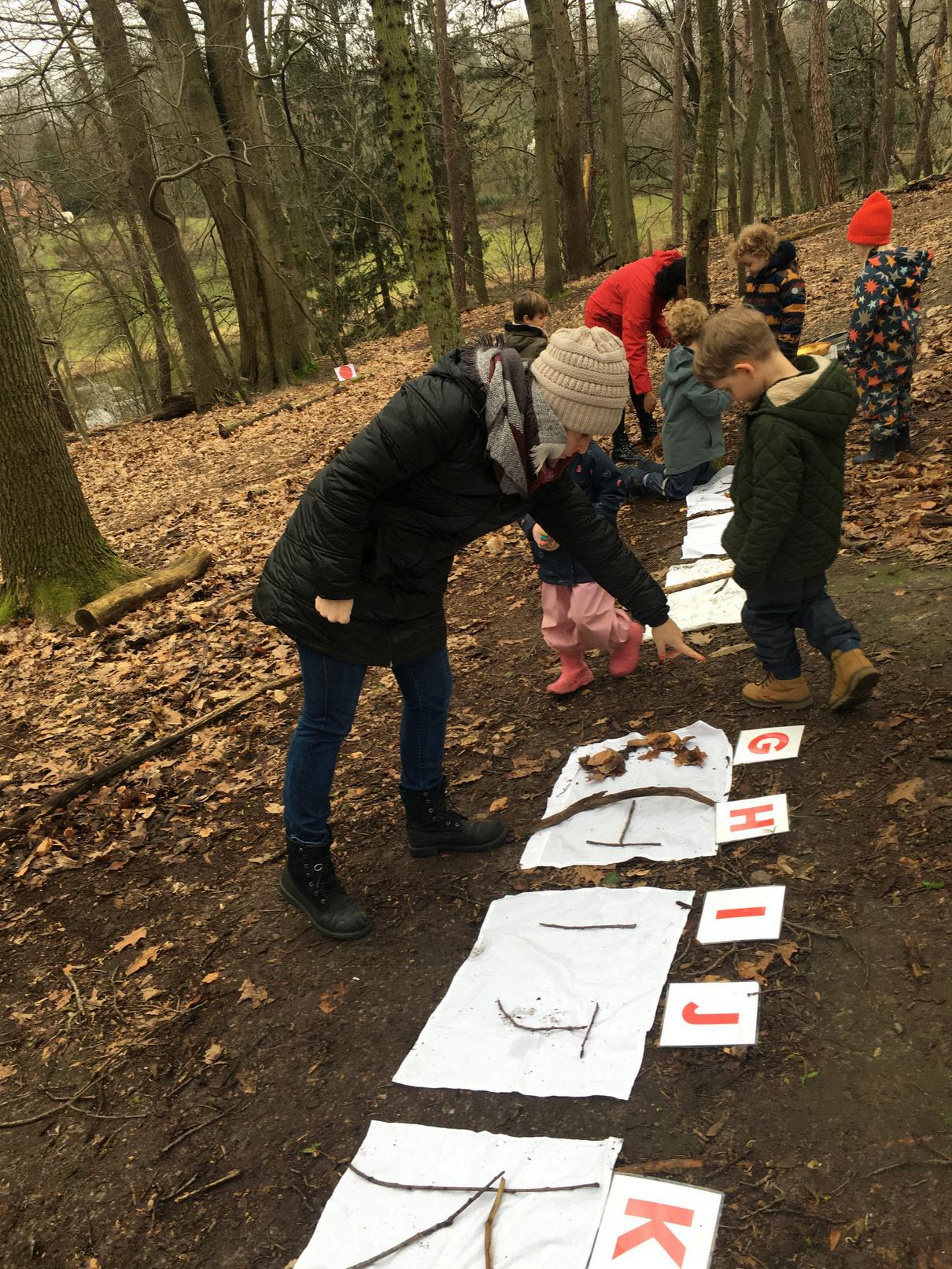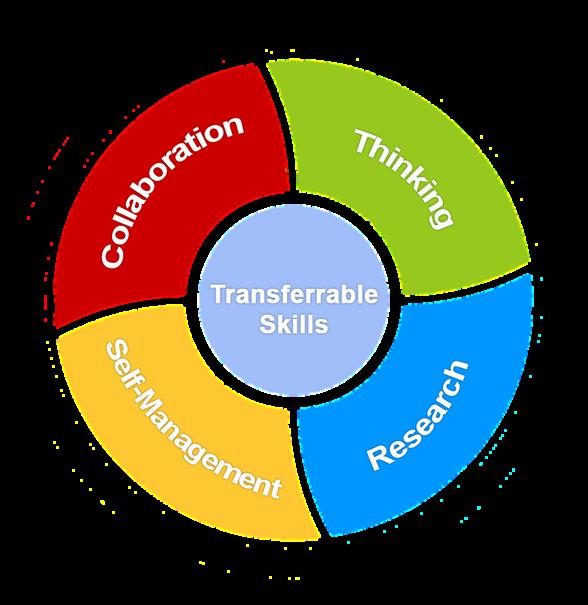THEPRESCHOOLEXPERIENCE KeyDevelopmentalMilestones Preschoolmarksacrucialdevelopmentalstageinachild'slife,characterisedby numeroussignificantmilestones.Amongthekeyachievementsduringthisperiod arethedevelopmentofsocialskills,aschildrenlearntointeractwithpeersandform friendships.Cognitivemilestonesincludetheacquisitionoflanguageandliteracy skills,aswellasbasicmathematicalconcepts.Motorskillsalsoseesignificant progress,withchildrenrefiningtheirabilitiesintaskssuchasdrawing,cutting,and tyingshoelaces.Emotionaldevelopmentisanothervitalaspect,withpreschoolers learningtoidentifyandmanagetheirfeelings,aswellasdevelopingempathy towardsothers.Moreover,preschoolservesasanintroductiontostructuredlearning environments,layingthefoundationforfutureacademicsuccess.Throughplaybasedactivitiesandguidedinstruction,childreninpreschoolembarkonajourney ofdiscoveryandgrowth,preparingthemforthechallengesandadventuresthatlie aheadintheireducationaljourney.
PersonalisingLearning IntheLowerSchoolatISBwe
embracetheuniquepotentialwithineachlearner tailoreducationalexperiencestoindividualstrengths,interests&pace empowerlearnerstoexploretheirpassions integratetechnologyseamlessly cultivatecriticalthinking,andcollaborateacrossdiverseperspectives developlearnerswhoconfidentlynavigatethecomplexitiesofourworld
BECOMING INTERNATIONAL CITIZENS ISBbelievesthatinordertobeInternationalCitizens,successfulinandoutof school,studentsneedtolearnanddevelopsocialandemotionalcompetencies. ThesecompetenciesaregroundedinourCharacterStandards. C h a r a c t e r S t a n d a r d s
ABalancedandPurposefulApproach AtISB,webelieveeverychildisstrong,confident,andcompetent
OurPreschoolandPrekindergartenprogrammeblendsplay-based learningwithintentionalteachingtoensureeachchild’sgrowthin knowledge,skills,anddispositions.Ateamofhighlyqualifiedearly years’teachersdesignandimplementaprogrammethatlaysthe foundationforimpactfulandsustainedlearningoutcomes.
OurApproachIs:
DevelopmentallyAppropriate
Learningexperiencesarealignedwitheachchild’sage, stage,andindividualneeds,supportingholisticgrowth cognitive,social,emotional,andphysical
RootedinaContinuumofLearning
Teachingisbasedonaclearlydefinedprogressionof knowledgeandskillsfromPreschoolthroughGrade12, ensuringcoherenceandcontinuityacrossalllearning phases
PurposefullyPlay-Based
Playisrecognisedasapowerfulcontextforlearning. Educatorsdesignrich,engagingenvironmentswhere childrenexplore,inquire,andbuildessentialknowledge andskillsthroughmeaningfulpla
PersonalisedandResponsive
Educatorsobserveclosely,listendeeply,andadapt learningtoeachchild’sstrengths,interests,andnext steps supportingdifferentiatedpathwaysforsuccess.
IntentionalandReflective
Teachersuseopen-endedquestions,provocations,and scaffoldingstrategiestoextendlearning.Planningis informedbyreflectivepracticeandalignedwith curriculumoutcomes.
Future-Focused
OurEarlyYearseducatorsworkcloselywithcolleagues acrosstheschooltoensurethatfoundationallearning connectswithlong-termeducationalgoals,preparing childrentothriveaslearnersforlife.
PRESCHOOLLEARNINGMODULES: Water Our5Senses Changes Description
Connected Disciplines
Conceptual Understandings
Anexplorationofhowwatermovesand interactwithdifferentmaterialsandforces
Science-PhysicalSciences
Learnersunderstandthat:
Watertakesondifferentforms Watermovesindifferentways Peoplecanmanipulatewater
Waterplayprovideslearnerswithboth importantsensoryandmotor opportunitiesaswellasanopportunity tobegintoexploreimportantconcepts suchascauseandeffect Throughthisunitlearnershavean opportunitytoobserveandinteractwith waterinordertoinvestigateand understandsomeofitsbasicproperties Learnerstakepartinnumerous explorationsthatinvolvemovingwater, observinghowthewaterinteractswith variousmaterialsandhowitrespondsto differentactions Learnersexperiment withconceptssuchasabsorptionand evaporation
Thisunitisdesignedtodevelopcore vocabularytodescribemovementand change
Anexplorationofhowweuseourfive sensestoexploretheworldaroundus
Science-PhysicalSciences
Learnersunderstandthat:
Oursensesprovidedifferentwaysfor thebodytoreceiveinformationabout theworld
Thedifferentpartsofourbodieshelpus tobeabletodothings
Drawingachild’sattentiontothefive sensesanddiscussingthemincreases theirunderstandingofandabilityto communicateabouttheworldaroundus Throughthisunitlearnershavean opportunitytousetheirfivesensesto exploretheirnaturalenvironment Through theuseofavarietyofmaterials,learners aresupportedastheylearnaboutdifferent bodypartsandhowtheyhelpushear, smell,taste,touchandsee Through questionsandprovocations,learnersare supportedastheymakeobservations usingtheirdifferentsenses
Thisunitislinkedtoreadingfictionand nonfictionbooksaswellasdevelopingthe vocabularytoexpresstheirlikesand dislikes
Anexplorationofhowsomechanges happenquicklyandotherchangestake placeovertime.
Science-PhysicalSciences
Learnersunderstandthat:
Somechangescanbeobservedand described Somechangecanhappenquicklyand somehappenoveralongerperiodof time
Changesareconstantlyoccurringaround usinboththenaturalandthehuman-made world Observingchangeallowslearnersto begintodevelopanunderstandingofhow andwhychangesoccur Throughthismodulelearnersobserveand participateinexperimentsthatdemonstrate simplecauseandeffect Throughmultiple experienceswithcooking,learnersobserve changesthatoccurquickly Through plantingseeds,learnersinvestigate changesthattakeplaceoverlongerperiods oftime Afterparticipatinginthese experienceslearnersinteractwithaseriesof photosthatdescribethechangeprocessfor eachitem
Thismoduleislinkedtoreadingfictionand nonfictionbooks,developingvocabularyto explainobservationsandprovidingthem withopportunitiestodocumenttheir observationsthroughmarkmaking
FORESTANDOUTDOORLEARNING Forestlearningandoutdooreducationprovide youngchildrenwithawealthofbenefitsthat contributetotheiroveralldevelopmentand well-being.
AtISB,webelievethat:
exposuretonaturalenvironmentsfostersa senseofwonderandcuriosity,promotinga loveforlearningfromanearlyage. outdoorsettingsstimulatesensory experiences,allowingchildrentoexplore differenttextures,smells,andsounds, contributingtotheircognitivedevelopment. physicalactivityisanaturaloutcomeof outdooreducation,promotinggrossmotor skills,balance,andcoordinationaschildren engageinactivitieslikeclimbing,running, andjumping
outdoorlearningenhancescreativityand problem-solvingskillsaschildrennavigate naturalchallengesandcomeupwith imaginativesolutions spendingtimeinnaturehasbeenlinkedto improvedmentalhealth,reducingstress andanxiety.
socially,outdooreducationpromotes teamwork,communication,andcooperation aschildrenengageingroupactivitiesand learntoshareandtaketurns. developingaconnectionwiththenatural worldatanearlyageinstillsasenseof environmentalstewardship,fosteringa lifelongappreciationfornatureanda commitmenttoconservation
DEVELOPINGEARLYSOCIAL,LITERACY ANDMATHEMATICALSKILLS InthePreschoolchildrenareintheearlystagesofdevelopingtheirsenseofselfand becomingpartofagroup.
Theyarebeingsupportedindevelopingindependence,copingskillsaswellas beginningtofollowclassroomroutines.
Thebeginningofthisprocessinvolvessupportingchildrentodevelopskills necessaryforasuccessfultransitionfromhometoschool.
ThePreschoolyearsprovidetheopportunityforchildrentoextendanddevelop language,listeningandcommunicationskills.
Teachersprovideanenvironmentwhichisrichwithstories,songsandrhymeswhere childrencandevelopaninterestandengagewithmeaningfulliteracyexperiences.
Childrenareencouragedtosharetheirthoughtsandideaswiththeirteachersand classmatesandbecomeconfidentparticipatinginlargeandsmallgroupsettings.
Childrenexperimentwithdrawingandwritingbymakingmeaningfulmarks.
Thechildrenareprovidedwithabroadrangeoflearningopportunitiestodevelop theirunderstandingofnumber,shape,pattern,measurementandspace.
Materials,suchas,blocks,puzzles,andmanipulativesencouragethedevelopmentof mathematicallanguage,counting,matching,andsorting.
r a n s f e r a b l e S k i l l s
BECOMINGANINDEPENDENTLEARNER Transferableskills,alsoknownasportableoruniversalskills,canbeappliedacross varioussubjectsandsituations.Theseskillsarenottiedtospecificdisciplinesbut rathercanbeadaptedandtransferredfromonecontexttoanother.
Strand AreasofFocus&Development
Collaboration Thinking HowcanIactivelylistentoothers?
HowdoIsharemyideasandbuild ontheideasofothers?
HowdoIworktogethertoachieve oursharedgoals?
WhatdoIthinkIalreadyknow aboutthistopic?
HowcanIdecideifinformationis helpfulandaccurate? Howdoesinformationfrom differentsourcesconnectto eachother?
Research Self-Management WhatquestionsdoIhave?
HowcanIfindthebest evidenceformyquestions? HowcanIorganiseandrecord myinformation?
GradeLevelFocusSkills
HowdoIseteffectivegoalsand whereamInowinachieving them?
HowdoIfeelandwhatis contributingtohowIfeel? DoIneedsupport?
IDENTIFYCURRENTKNOWLEDGE&UNDERSTANDING identifywhattheycurrentlyknowandunderstand aboutaparticularidea,conceptortopic identifygapsintheirknowledgeand understandingofaparticularidea,conceptor topic,aswellpotentialmisconceptions.
CONSTRUCTQUESTIONS: conductpreliminaryresearcharounda broadtopicwhichallowsthetopictobe narrowedappropriately constructapowerfulresearchquestionthat requiresanalysisandconceptualdepth constructsmallerquestionsthatleadtoa possibleanswertoabiggerquestion
h y s i c a l E d u c a t i o n & H e a l t h V i s u a l & P e r f o r m i n g A r t s
SPECIALISTPROGRAMME SpecialistprogrammesatISBareessentialcomponentsofawell-roundededucation. These programmesenhanceproblem-solving,criticalthinking,decision-making,teamwork,andself expression.
EachprogrammeistaughtbyaSpecialistintherespectivefield.
BodyAwareness
GrossMotorSkills Well-Being
ThePhysicalEducationand Heathprogrammefocuseson thefollowingareas:
MotorSkills&Movement Patterns
Concepts,Principles, Strategies&Tactics
UnderstandingHealthy Lifestyles
Beginningatanearlyage,childrenareactivelyinvolvedinoutdooractivitieslike foresthikesandbicycleriding,experiencesthatpersistthroughouttheirschool years.Theseengagementsnotonlyforgeconnectionswithnatureandwellbeing butalsoinstillstaminaforwalking,layingdownthegroundworkforlifelongphysical movement.Whenindoorsandinsmallgroups,childrendelveintofundamental locomotorskillsandalsolearntheimportanceoftakingturns.Childrenare providedwithindividualfeedbacktosupporttheirmotordevelopmentandgrowth. Throughactivitieslikeobstaclecourses,yogaandexposuretoavarietyofphysical games,childrenrefinethroughrepetitiontheirmovementskills,furtherenhancing collaborationandplayexperienceswhilestimulatingbodyandspaceawareness, sensoryandmotordevelopment.Weliketofosteraholisticapproachtophysical developmentfromtheoutsetoftheireducationaljourney.
PerformingArts
TheArtsprogramme focusesonthefollowing areas: Creating& Performing and
Responding& Connectingto visual&musicalartworks
InPreschoolouryounglearnersexploreandshare theirperceptionsoftheworldaroundthemina safeandsupportiveenvironment Creativityis nurtured,finemotorskillsrefined,and communicationfacilitatedaslearnersexplorethe elementsofArtthroughopenendedexperiences. InourPreschoolVisualArtsprogramme,young mindsareintroducedtoanarrayofartistic mediums,fromsculptureandconstructionto painting,drawing,andtextiles.Hands-on engagementisattheheartofourapproach, empoweringourbuddingartiststoimmerse themselvesinthetactileprocessofcraftingboth individualmasterpiecesandcollaborativeworks ofart Witnessingtheirindividualcreations seamlesslymeldwiththoseoftheirpeerstoform collectivetreasuresfillsourstudentswith boundlessjoyandpride.Withinthewelcoming spacesofourECCcommonareaandChateau,an ever-evolvinggalleryproudlyshowcasesthe imaginativeendeavorsofouryoungtalents, shiningaspotlightonbothindividualbrilliance andcollectiveachievements VisualArtisa primarylanguageofexpressionforourpreschool learners,theprogrammeplaysacrucialrolein enrichingthepreschoolexperienceandlaysthe foundationforfutureartisticexpressionand appreciationoftheArts.
OuryoungestISBstudents experiencemusicnaturally,much aslanguageislearned Inevery classtheyhearawiderangeof multiculturalsongsthatopentheir earstodifferentharmoniesand styles,usingpropssuchas scarvestomovewiththemusic. Thisallowsstudentstophysically experiencetheinterconnectionof musicandmovement Whenthey feelcomfortable,theyjoinin singingandechorhythmand melodypatterns,whicharesimilar towords Smallpercussion instrumentsareexploredand playedbystudentstobegin manipulatingandunderstanding sound Becausethelanguageis music,everystudenthas immediateaccesstoactivitiesin musicclass.
VisualArts
L a n g u a g e s P a t h w a y s
LANGUAGESPROGRAMME Students,whohavedemonstratedproficiencyinEnglish,accessourFrench language.AdditionallanguagesareofferedaspartoftheISB+programme, basedondemand. ISBfollowstheCommonEuropeanFrameworkfor Languages.
English Proficiency
French FoundationsA1
IntermediateA2 InedpendentB1/C1
Grades5&6
Science& SocialStudies inFrench option
ISB+Plus Languages Opentoall regardlessof English Proficiency
HOMELANGUAGECLASSES StudentswhospeakHebrew,Spanish,Japanese,Korean,Dutch,orSwedish haveaccesstoonehouraweekofahomelanguageclass.For PrekindergartenandKindergartenthishasanorallanguagefocus,for studentsinGrade1and2thishasafocusonearlyliteracyskills.
